Seki Souma
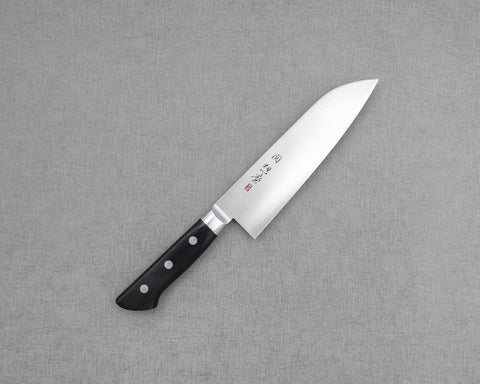
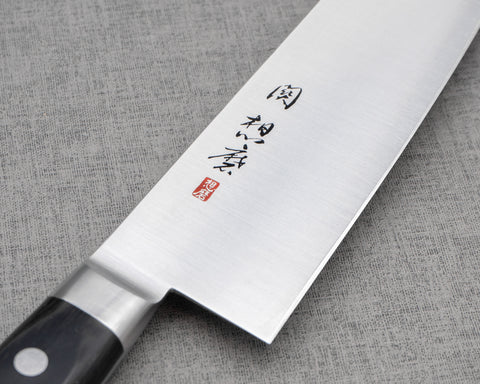
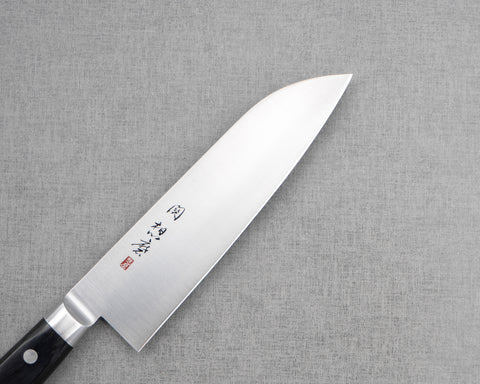
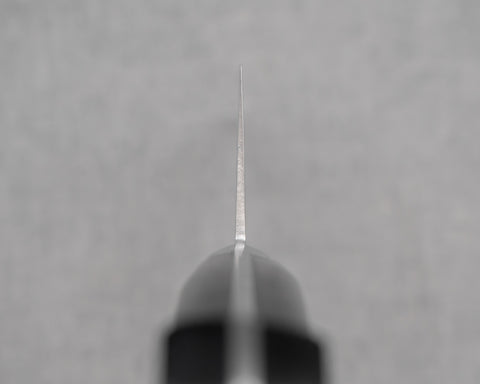
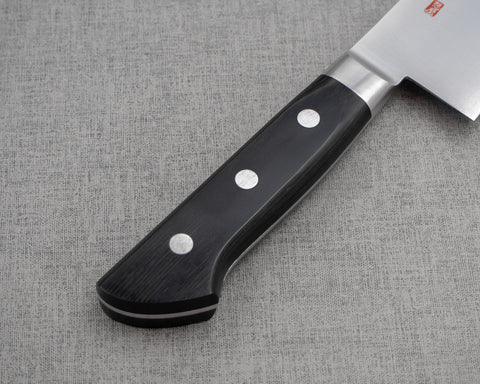
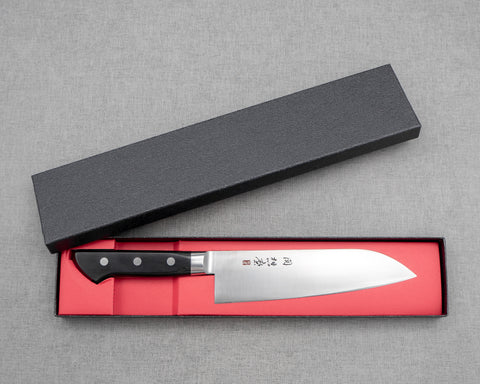
Seki Souma AUS-8 180mm Santoku
目前沒有提供取貨服務
The Seki Souma AUS-8 series is an essential kitchen tool, crafted from durable AUS-8 stainless steel. It features superior toughness and minimal chipping compared to other harder steels. The full tang Western-style handle provides a comfortable grip, while the out-of-box sharpness impresses at an affordable price point. Adorned with a Japanese signature and red seal on the blade, these knives offer both functionality and beauty. This series offers an excellent entry point for experiencing the quality of Japanese knives.
Spec:
- Origin (Made in): Seki City, Gifu Prefecture, Japan
- Brand: Seki Souma
- Knife Type: Santoku
- Blade
- Construction: San Mai
- Grind: Double-edged Blade (50/50 Grind)
- Hagane (Core Steel): AUS-8
- Jigane (Cladding): Stainless Steel
- Hardness: 57-58 HRC
- Hand-sharpened
- Blade Length: 145mm (7.1")
- Blade Height (at heel): 46mm
- Spine Thickness
- Above heel: 2.0mm
- Middle: 1.7mm
- Handle
- Shape: Western-shaped
- Material: Laminated Composite Wood
- Bolster: Stainless Steel
- Length: 111mm
- Overall Length: 296mm
- Weight: 159g (5.61oz)
- Mark: In Japanese Kanji "Seki Souma" (関 想磨)
- Stamp: In Japanese Kanji "Souma" (想磨)
About Seki Souma 関 想磨
Seki Souma, formerly FKM, is a prestigious Japanese knife brand from Seki City, blending traditional craftsmanship with modern design. Their high-quality kitchen knives cater to both professionals and enthusiasts. Meticulously crafted using ancient methods, each blade offers exceptional sharpness and durability. Seki Souma embodies the legacy of Japanese craftsmanship, offering knives that combine beauty, functionality, and value for both aspiring and seasoned chefs. Despite their high quality, Seki Souma positions their products as accessible options, allowing more people to experience excellent Japanese knife-making without exorbitant prices.
Care:
Wash and dry with a soft sponge, and safely store after use. Avoid cutting into bones, frozen foods, hard fruit pits.
Cutting Surface:
Recommended cutting surface: wood, rubberized boards and high-end composites, and quality plastics such as polyethene make acceptable cutting surfaces, and will help protect and prolong knife’s edge. AVOID glass, metal, countertops, and other rigid, non-forgiving surfaces.
Sharpening:
We recommend sharpening all quality Japanese knives on whetstones, as we believe they yield the best results for your knives.
